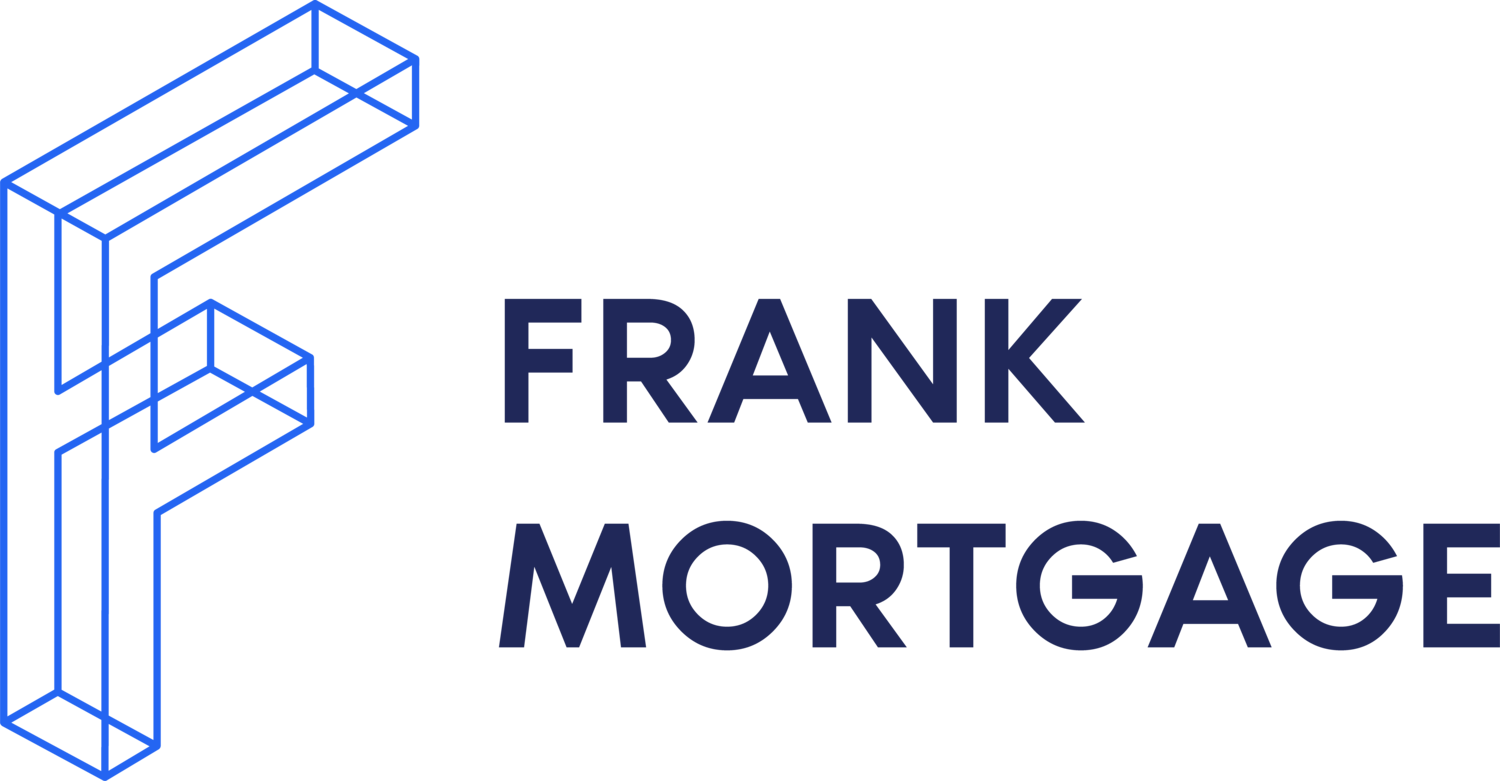Mortgage Renewal Strategy
What to do Now That Mortgage Rates Are Dropping?

The Prime Rate has declined by 0.75% since June. That is great news for mortgage borrowers facing a renewal in the coming months. What’s better news is that the market is predicting that interest rates will decline further from here. While a mortgage booked at very low rates between 2019 and 2021 is facing renewal at higher rates today, these rate reductions are improving the environment for mortgage renewals going forward.
Recent surveys show that many Canadian borrowers are stressed about their mortgage renewal. Facing a higher rate on mortgage renewal makes that understandable. The cost of servicing mortgage debt has gone up and, in most cases, it has gone up more than earnings and wages. This means it is important to take the time to ensure you get the best deal you can on renewal of your mortgage.
The First Decision to Make About Your Mortgage Renewal
Your current lender will send you a mortgage renewal offer somewhere between four and six months before your mortgage renewal. That offer will include a mortgage rate. Should you accept it?
Mortgage borrowers in receipt of a mortgage renewal offer can decide to:
- Accept the offer and sign it back. This is the easiest thing to do. It takes little time and effort, and you know your mortgage will renew on time. Unfortunately, it is often the most expensive alternative. The mortgage rate in the renewal offer is almost certainly not the best mortgage rate that you can get. Recently, some banks have even stated publicly that if the customer does not have multiple products with them that they would not be offering a competitive mortgage renewal rate.
- Negotiate the mortgage renewal offer with your current lender. You can do some research on competitive mortgage rates in the market and if you find better rates elsewhere you can try to negotiate with your lender to see if they can match or beat those rates. Note that some banks will require you to commit to other banking products to negotiate a lower rate. To maintain your financial independence another lender may be better for you.
- Move to a new lender that offers lower rates and perhaps better terms, options and service to meet your mortgage needs. This alternative will often lead to the lowest mortgage rate, but it does take some time and effort. We like to think that finding thousands of dollars of savings on your mortgage is worth the effort.
With mortgage rates higher today than they were when you took out your current mortgage, every basis point (a basis point is 1/100th of a percent) of savings you can get on your mortgage renewal is meaningful. Since your renewed mortgage will likely eat up more of your budget due to today’s higher rates, any savings available to you should be pursued.
Shopping around for a better rate is not difficult and can provide significant financial benefit. Working with a good mortgage broker that has access to many lenders can lead you to a better outcome. Just make sure that any mortgage advisor you are working with prioritizes your interests. A unique feature of Frank Mortgage is that our customer-first approach provides borrowers with choice. We show you multiple lender alternatives. Having this kind of choice allows you to not feel trapped at your current lender or compelled to take the mortgage option your advisor recommends.
Whether you are dissatisfied with your current lender or simply looking for the best rates and terms, be prepared to make this crucial financial decision. In this blog post, we guide you through the smart steps to take when your mortgage is up for renewal.
The Keys Things to Consider at Mortgage Renewal
1. Start Your Mortgage Renewal Process Early:
Begin the renewal process well in advance. This provides time to evaluate affordability, explore options, compare rates, and make informed decisions. Waiting until the last minute may limit your choices and create unnecessary stress.
2. Assess Your Current Situation:
Evaluate your current finances. Consider your financial goals and assess any changes in your circumstances. Consider factors like income, expenses, and future plans. When evaluating your mortgage options, focus on affordability.
It is in your best interests to do the math to understand what you can afford. You can use https://www.frankmortgage.com/mortgage-payment-calc to see what your mortgage payment might be at today’ rates. Understand this math and then find choice - real product selection - so you are well armed for such an important decision.
3. Distinguish Between a Mortgage Renewal, a Mortgage Switch, and a Mortgage Refinancing:
Renewing involves staying with your current lender but renegotiating a new rate and mortgage term.
Switching means renewing with a new lender without renegotiating terms other than the rate and term of the new mortgage. Many lenders offer aggressive rates for switching and you can often get a much better mortgage rate than that offered by your current lender.
Refinancing means negotiating a new mortgage with different terms. Refinancing can allow you to enter a new mortgage that provides benefits. An example is that you could extend your amortization period to lower the monthly payments. Another is that you could increase the balance to borrow some much-needed additional funds.
A proper assessment of your financial situation and goals will help you decide which option suits you best.
4. Consult with a Mortgage Professional:
Engage the services of an experienced mortgage broker early in the process. A broker can provide personalized advice, shop around on your behalf, and negotiate with lenders to secure the best rates and terms tailored to your specific needs. Be sure to use a broker that deals with multiple lenders so you can see a variety of alternatives for your financing needs and have real choice in your mortgage decision.
Choose a mortgage broker and/or mortgage lender that places the customer first. Many mortgage brokers are focused on making a commission as their priority. Make sure the mortgage broker you use focuses on your outcome as their priority. Personalized attention and timely responses to your queries can significantly enhance your mortgage experience. A dedicated mortgage broker with the right customer-first approach can help you navigate this process smoothly.
5. Compare Mortgage Rates and Mortgage Terms:
Don't just settle for the mortgage renewal offer from your current lender. That would likely be the easiest thing to do but it is usually the most expensive. There are many lenders in the market willing to make competitive offers for your business. Use that to your advantage and seek out the best mortgage rates. Compare mortgage rates and mortgage terms from multiple lenders. You can find rates online yourself, but you won’t know for sure if you can qualify for these rates. There are also special offers made available to mortgage brokers from time-to-time that you won’t find online. A good mortgage broker, like Frank Mortgage, has access to multiple lenders and can access a wide range of options, ensuring you have a comprehensive view of what you can qualify for.
6. Consider Product Choice:
Look beyond interest rates. Consider the mortgage product that best aligns with your financial goals. Things to consider include fixed or variable mortgage rates, open or closed terms, prepayment flexibility, portability, payment frequency, etc. You may have personal circumstances that require a deeper look at the mortgage beyond just the mortgage rate.
7. Extended Amortizations:
With a mortgage renewing in 2024 or early 2025, you are likely to end up with a higher rate and, therefore, a larger mortgage payment. One way to reduce your mortgage payment is to extend your mortgage amortization. This requires you to undergo a mortgage refinancing. This may provide a lower payment but extend the amount of time it will take you to pay off your mortgage. The financial relief may be helpful in the short term but be aware of that trade-off – lower payments today vs higher overall debt service cost on over the long-term.
8. Think About Interest Rate Risk When Considering Variable Rates:
Too many borrowers made bets on interest rates back in 2021 and 2022. Most regret that now and it has cost them dearly. The lesson is that it is best not to try to predict where mortgage rates are going. They may continue to decline somewhat but over the long term they may remain elevated and could even, one day, be higher than they are today. This is all speculation, but the appeal of a variable-rate mortgage depends on your risk tolerance.
If you are risk averse, you should try to not expose your home to rate risk – leave that for your investment portfolio. Take the best mortgage rate and the mortgage term that gives you peace of mind and a mortgage you can afford. Doing this allows you to not worry about where rates are going every day.
If your risk tolerance is higher, a variable-rate mortgage may present an opportunity for some savings over time. Be careful to do the math because variable rates are more than one percent higher than fixed mortgage rates today. You can benefit if rates drop dramatically but you will end up paying more for the mortgage at the start. It is a risky bet.
9. Stay Informed:
Keep yourself informed about market trends and interest rate movements. Traditional mortgage brokers and lenders are not good at keeping their customers up to date with current information. In a recent market survey only 23% of borrowers found out about market events, like interest rate increases, from their mortgage broker. This is poor service. More modern mortgage brokers, like Frank Mortgage, provide regular updates to their customers so they can stay informed and educated about the mortgage and housing markets. Being aware of market events will empower you to make informed decisions.
Options if Mortgage Renewal Stresses Your Finances
If renewing at a higher rate makes your mortgage payments unaffordable there are a few things you can consider:
- Adjust your budget by reducing discretionary spending so you have more of your monthly cash flow available for mortgage payments;
- Sell your home and either downsize or rent;
- Seek temporary relief if necessary. Reach out to your lender before trouble hits and they will let you know how they can help. Most lenders will allow short-term payment deferrals or other payment relief to help you temporarily deal with cash shortfalls; and
- Consider using your home equity. This is risky since it adds to your overall leverage. However, if you see your circumstances improving in the future you may be able to afford using some of your existing home equity to relieve your current financial stress or pay down other debts. Borrowing against home equity is less expensive than unsecured lines of credit or credit cards.
Be careful not to over-leverage yourself. Only take on debt that you can afford. Seek financial advice if you need help making these decisions.
Conclusion
Renewing your mortgage is a pivotal financial decision that requires careful consideration. By starting early, seeking professional advice, and exploring all available options, you can secure the best mortgage rate and terms for your mortgage renewal. The ultimate decision at mortgage renewal is yours to make so stay informed and do your homework. Now with rates declining, the environment for mortgage renewals is improving. A little preparation goes a long way to finding the lowest mortgage rates and delivering you the best outcome. Remember, a mortgage broker is your ally in this journey. The best mortgage brokers in Toronto, Vancouver, Calgary, Winnipeg, Ottawa, Halifax, all across Canada, provide personalized service and access to a wide array of choices. An informed decision with your mortgage renewal can set you up for financial security and peace of mind with your home.
Frank Mortgage is here to reduce your mortgage renewal stress and to find you the lowest rates for a mortgage renewal, mortgage switch or mortgage refinancing. We have access to Canada’s best mortgage lenders and can get you a better offer than the renewal offer from your current lender. Find us at
1-800-850-1337 or
www.frankmortgage.com. We are here to help.
About The Author

Don Scott
Don Scott is the founder of a challenger mortgage brokerage that is focused on improving access to mortgages. We can eliminate traditional biases and market restrictions through the use of technology to deliver a mortgage experience focused on the customer. Frankly, getting a mortgage doesn't have to be stressful.
Related Posts




Mortgage Brokerage Licensed in Ontario (#13204), British Columbia, Alberta, Saskatchewan (#514115), Manitoba, Nova Scotia, Newfoundland & Labrador, and New Brunswick (#230015752).
© Frank Mortgage 2025 | All Rights Reserved


